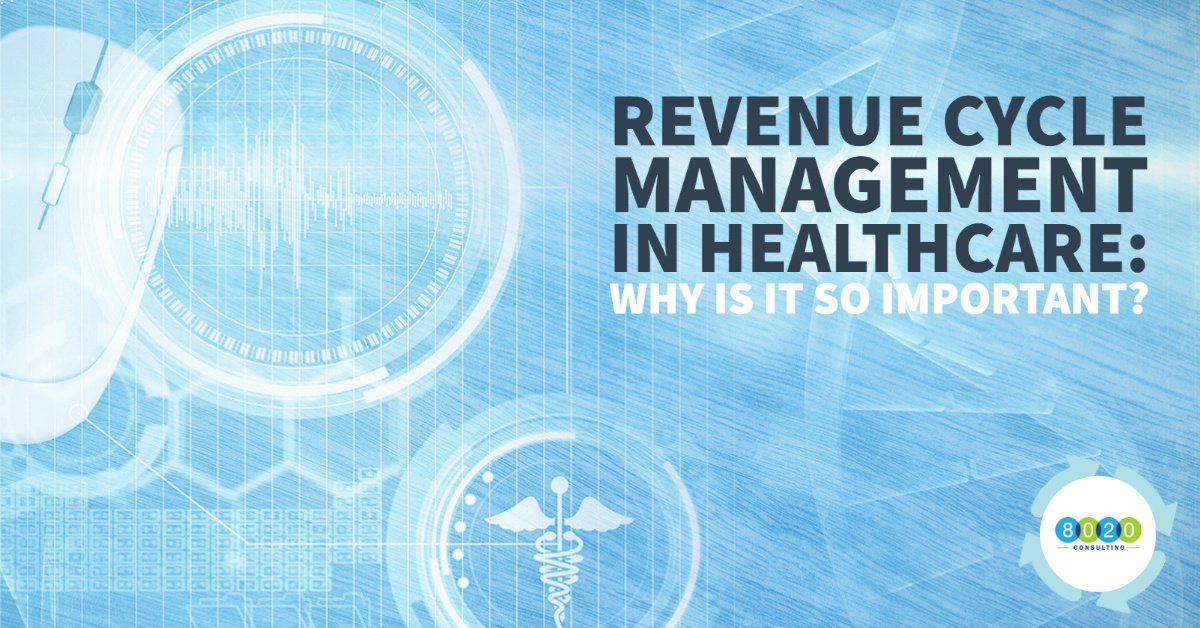
Healthcare practices struggle with rising operational costs while also trying to manage patient care. Successful medical practices require the administrative and clinical functions to perform in parallel at a high level, with effective revenue cycle management being one of the most important contributing factors.
Revenue Cycle Management in healthcare, or RCM, ensures that medical practices are appropriately reimbursed for claims that they bill to the medical payers. It’s vital that these practices receive payments from the insurance companies and medical payers in a timely manner in order to remain profitable. Reimbursements and collections, if not properly managed, can have detrimental effects to any medical practice, putting additional stress on the finance and management team. An effective RCM team has oversight over costs, spending, revenue and accounts receivables, making it one of the most important departments for any medical practice.
What is Revenue Cycle Management in Healthcare?
Let’s start off with the basics. The function of RCM is typically defined as the process of handling claims, processing payments and overseeing the entire revenue cycle of each member, from the moment they walk into the doctor’s office until their last treatment.
It’s important for practices to manage their cash flow each month; that is one of the main components of managing a revenue cycle. Ensuring a consistent flow of payments from the health plans allows for a more predictable and accurate revenue forecast—which ultimately impacts the P&L.
The RCM team also oversees the costs associated with each patient’s care, allowing visibility into any dips in margin for a particular period. A strong RCM team can manage the impact of these costs by streamlining the revenue process. Managing a constantly evolving healthcare system is challenging, and although RCM systems are not a one-stop solution for all payment-related issues, three main benefits related to increased profitability should be explored.
Benefit #1: Revenue Cycle Management in Healthcare Maintains Consistent Revenue.
The ability to maintain a stable revenue stream is of utmost importance when managing a healthcare practice’s financials. The revenue cycle of each patient predicts the cash flow of each transaction, allowing visibility into how much revenue a business can expect on a given date.
Many insurance companies do not pay claims until 45 days after the date of service. This delay in payment can crumble any medical practice if not managed properly. By using a gross collection ratio (i.e., payments divided by charges), an RCM team can efficiently accrue revenue being reported to the P&L each month. Every transaction will not proceed according to schedule; however, an accurate and healthy collection ratio can offer a solution to maintain revenue recognition each month.
The most significant benefit of an effective RCM team is undoubtedly enhanced revenue performance. Having visibility and being able to examine data through key ratios can help medical practices identify inefficiencies and solve them in a timely manner.
Benefit #2: Revenue Cycle Management Improves A/R Management.
A/R Management is another key benefit of the RCM function related to healthcare finance. In general, 30% of a typical practice’s claims are greater than 120 days in A/R. This 30% can account for hundreds of thousands of dollars if not accounted for and properly managed.
Reducing outstanding accounts receivables can lead to increased profitability as more money comes in the door. An effective RCM team can significantly improve revenue collections while managing troublesome A/R accounts that can potentially lead to write-offs. This benefit focuses on remittance processing and denials management, while maintaining a stable revenue stream is focused on optimization.
Good RCM teams typically produce robust weekly Management Decks that highlight the cash forecast, revenue, A/R, Days Sales Outstanding and other important KPIs essential to understanding business profitability. These metrics allow businesses to proactively highlight problem areas within accounts receivable and quickly provide analysis towards solving the issue.
Benefit #3: RCM Helps Denials Management.
Incorrect claims are the number one reason for ballooning A/R numbers and reduced cash flow. 90% of claim denials are preventable. It’s essential for the RCM team to manage denials and keep these expenses to a minimum.
If your medical practice allows denials to exacerbate, it can cause cash flow problems down the line. One out of every five dollars of RCM expenses can be attributed to denials. By proactively managing this data, many practices can yield hundreds of thousands of dollars each year in additional revenue. From a finance perspective, producing weekly reports that track denial reasons and outputs can help inform business decisions and highlight areas of importance. Mistakes made within this area can be costly, making the potential benefit of excess revenue even more paramount. Denials can also be tracked via denial reason for easy group reconciliation.
Ultimately, the goal of the RCM team is to develop a process that helps the practice get paid the full amount as quickly as possible; denials account for the biggest roadblock towards achieving that goal.
Learn More
In simple terms, healthcare organizations need to stay in the black and maintain profitability to provide effective care to patients. Revenue cycle management in healthcare can provide the essential tools to practices and management that need to report financials to the board. Without efficient processes, practices can lose out on thousands of dollars each month in payer reimbursements and associated revenue streams. Maintaining a consistent revenue stream, managing A/R accounts on a weekly basis and tackling large denial volumes can all add additional revenue to the P&L and allow the business to reap the increased gross margins.
To be notified whenever our team posts new insights, subscribe to our blog! If you want to learn more about how our team supports companies with financial planning and analysis, you can visit our service page:




